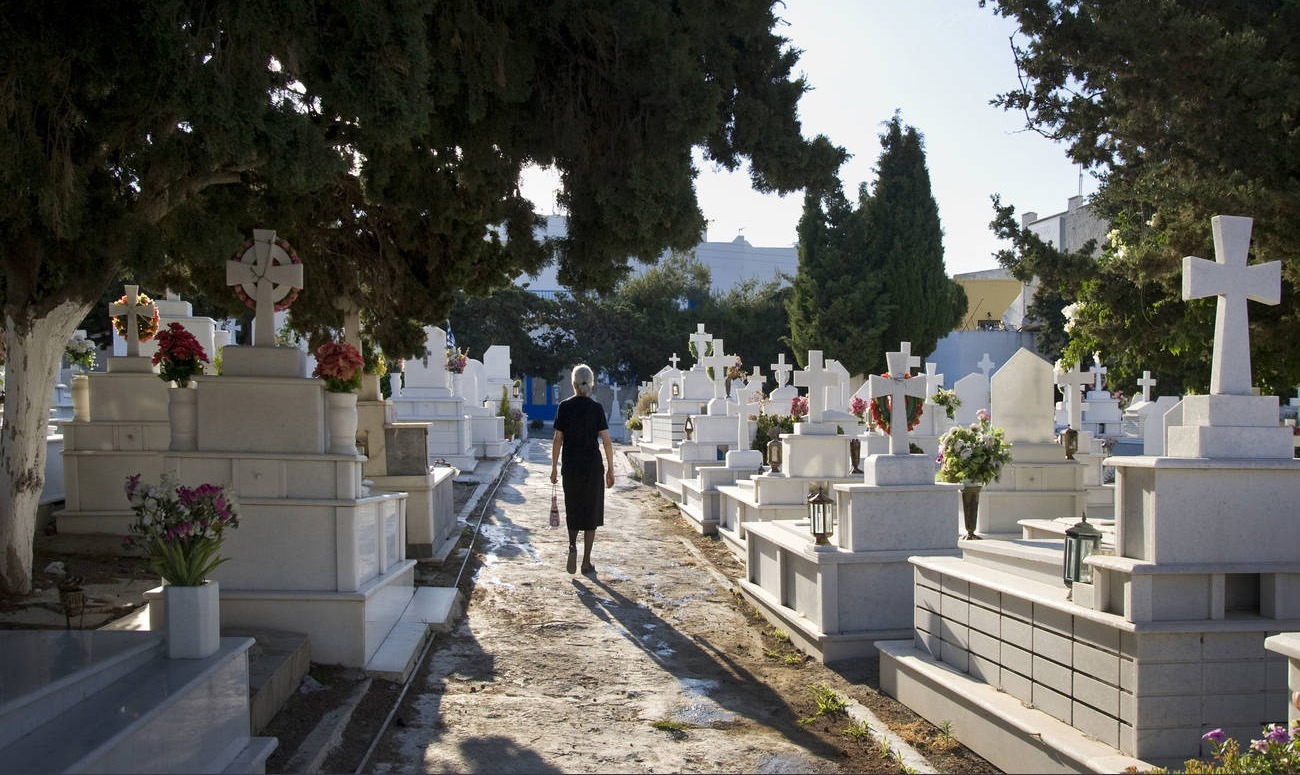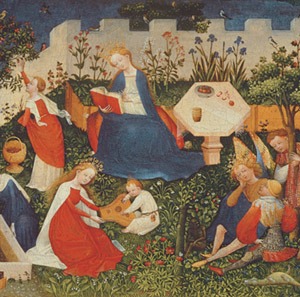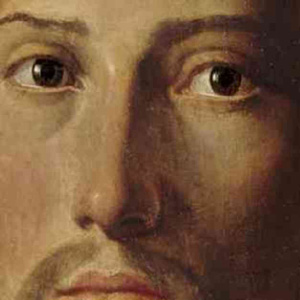
As a manufacturer of children’s stationery, holding the copyright for Disney motifs, Antonis Alkiotis never expected to specialise in matters of death. Greece, of course, has a long history of concern with the subject. In ancient times, the deceased were often cremated on the third day, when the soul was believed to begin its journey through the underworld.
Yet before 2019, such practices were impossible in Greece. Cremation is virulently opposed by the Greek church – the only branch of Eastern Orthodoxy to ban the practice. When Alkiotis opened his crematorium in November of last year, The Holy Synod of the Church of Greece warned that members choosing to be “burned in the oven” would not receive a religious funeral.
In a country where over 90 per cent of citizens identify as Orthodox Christians, the conflict over cremation speaks to an ongoing tension between the law of the state and the law of God. The dictates of the Greek Church have not only constrained the choices of Orthodox Christians (many of whom would prefer to cremate), but also infringed on the rights of religious minorities and the nearly 5 per cent of Greeks who identify as atheist or agnostic.
“I wonder why they haven’t excommunicated me,” laughs Alkiotis. While he is a Christian himself, his campaign for cremation began years earlier with a Buddhist: the Greek painter Pavlos Moschidis. The two became friends after Alkiotis purchased one of Moschidis’ works in 1995. When the artist requested that Alkiotis oversee his wishes for cremation, the latter readily agreed – no problem, he said.
“But it was a problem,” Alkiotis explains. “Cremation in Greece was illegal and Moschidis told me that politicians were afraid to make a bill permitting it because they didn’t want to go against the Church.” Those in Greece wishing to cremate a family member or friend were forced to travel to a nearby EU country, typically Bulgaria, at considerable financial and emotional expense. In 1997, Alkiotis co-founded the Greek Cremation Society and began the long fight to bring the practice to his own country.
***
It wasn’t only a moral and religious issue, but a practical one too. The emphasis on burial as the only practice sanctioned by both Church and state in Greece had created its own issues. A rapid growth in the country’s urban population in recent decades, coupled with poor planning, had left the majority of its metropolitan cemeteries severely overcrowded. With some 100,000 deaths per year, the demand for burial space has resulted in a high premium on real-estate and equally high turnover.
Grave plots are normally rented for a period of three years, with fees thereafter inflated to deter ongoing occupation. After this period is up, the body is exhumed. Around a quarter of bodies have not yet fully decomposed and so they are shifted to another, inferior rental plot for a further two years. Once decomposed, the remaining bones are stored in an ossuary, an archive-like facility where bones are kept in metal boxes. Those unable to pay for this ongoing storage must consign their loved ones’ remains to a form of mass grave: a pit into which millions of bones are cast, sometimes with the addition of substances that aid decomposition.
“This is Greek civilisation,” Alkiotis says. “We have a long history of respecting the dead – and the modern Greeks talk about holy bones, then drop them in a hole, pour in some chemicals and send a letter to the family asking them to come. It is a new tragedy.”
Many recount exhumation as a gory second funeral – it’s usually a paid process at which the family and priest are present. With a decade of financial crisis continuing to wreak its toll on Greek citizens, the economic drain and personal trauma of exhumation might seem like sufficient incentives to opt for cremation. But while Orthodox religious leaders continued to take a hard line against the practice, Alkiotis saw another opening for progress.
“I am a businessman,” he says, “so I thought that Greece has not only Orthodox Christians, but also Protestants, Catholics, Muslims, Jews, Buddhists and many atheist tourists who die here and must be transferred abroad. I saw that we had to change our agenda and frame cremation as the human rights of religious minorities in Greece. Politicians could not go against this.”
After almost a decade of lobbying foreign embassies and Greek politicians, little progress had been made. When Alkiotis found himself on a plane to Sofia with Moschidis’ body and family in 2004, he was ready to give up. “I was filled with sadness, grieving my friend and wondering what kind of country we are where persons like him who offer culture and civilisation to society must go abroad like a refugee to be cremated,” he says.
Change eventually came in 2006, when a bill to legalise cremation was finally passed through parliament. However, individual municipalities were still unwilling to host a crematorium. When counsellors from a district east of Athens finally agreed to build a facility, a local bishop collected 3,000 signatures opposing the plan and there were calls to burn the mayor.
Meanwhile another mayor, Yiannis Boutaris of Thessaloniki, had taken up the cause, considering the matter to be a core issue for Greek democracy, a fundamental “freedom of disposing your body”. In 2017, Alkiotis and his allies in the Syriza administration managed to bypass local government by legalising private facilities. Less than two years later, the country’s only crematorium was opened by private investors in Ritsona on the outskirts of Athens.
“They called me the Trojan Horse,” Alkionis jokes, “because I used the discourse of human rights as a vehicle. By not talking about Orthodox Christianity, we also won freedom for Orthodox Christians.”
The strategy undoubtedly succeeded in advancing freedom of choice in Greece – a country that has been repeatedly condemned by the European Court of Human Rights for shirking its obligations
towards religious minorities. Its flipside, however, is that reforms realised under the discourse of religious minority rights do not fundamentally challenge the hegemonic status of the Orthodox Church or its promotion of religious dogmas in Greek society.
“I am until now surprised at how conservative we are as a nation,” Alkiotis says. “The spirit of the French revolution shows one face of the European civilisation – that of humanism, which prioritises respect for individual will. But Greece shares a more common spirit with places like southern Italy, where we live by the ideology of the family – we must do what the father says. The family gives the Church and priests a very important status, sometimes higher than politicians.”
Alkiotis points to the uptake of cremation in northern Europe, as high as 75 per cent in countries like Denmark, as compared to the 4-5 per cent of Greeks who reportedly prefer the practice. Even among this minority, however, only around one third actually end up being cremated, because someone’s death wishes take second place to pressure from family members to adhere to religious protocol.
“I think a future Greek society will accept cremation as something normal, as a personal choice, but until now it does not,” Alkiotis says.
The Greek Church’s opposition to cremation is not based on faith alone. Given the endorsement of cremation by other Orthodox churches worldwide, including Greek churches in foreign countries, it is difficult not to suspect more commercial interests are at play.
“If someone is cremated, the ashes are taken to the sea and business stops there,” Alkiotis says. At his facility, it costs around €600 to be cremated, and 30 per cent of profits are donated to a local charity. “But if somebody dies and is buried in the cemetery, it is like a customer in a shop which the family will keep coming back to. It is all one big factory, a big hypocrisy.”
The graves in Athens cemeteries are dug shallow. Costas (not his real name), a Pakistani owner of a marble business serving a cemetery in the north of the city, points out that they fall well short of the 1.5 metre minimum requirement. This is because, as Costas explains, an average of four bodies are exhumed here every day. Various empty plots are dotted around the cemetery, which has a capacity of some 5,500. The remains of coffins and shreds of clothing are still visible in the churned-up earth. In the far corner of the facility behind a large ossuary, smaller graves – those of evicted bodies awaiting decomposition – are crammed together, the headstones arranged hastily at angles, candles cast to one side. On the surface of one plot is an old army sock, still containing a set of foot and ankle bones.
A notice posted at the cemetery entrance announces the cost of real-estate: three-year rental of plots at between €3-4,000 or purchase at up to €48,000. There is also the cost of the fees to the municipality, a burial permit, exhumation (€50-60), ossuary rental (around €50 per year) and the price of the funeral service itself, beginning at around €800.
Annual profits from cemeteries to a single local government municipality extend well into the hundreds of thousands of euros and reportedly as high as €8 million in Athens. Then there is the business of marble, flowers, photographs, candle-lighters and priests, who, though paid by the state, are typically also imbursed by patrons.
“It is a yield,” Costas says. “Of course, they should not take bodies out of the ground because they are holy, but if they leave them there, there will be no work. People live from this industry, including myself.”
He doesn’t like coming to the cemetery, he tells me, and only does so when business requires – the place smells of death and hypocrisy. Adherents of Islam in Greece, like Costas, are normally buried at the Muslim cemetery in the northern city of Xanthi or repatriated to their nations of birth. “We are put in the ground and we stay there,” he says, pausing over a series of drain-like metal coverings.
He lifts them up to reveal a pile of skulls and bones amid the refuse and cockroaches. These are the lucky ones: this cemetery is relatively affluent and central, whereas bodies taken to more remote “poor” cemeteries are often hurriedly buried in unmarked graves. The prohibitive cost of burial has even led to an increase in requests to Greece’s medical schools to receive bodies – even when the deceased has not consented to donation.
“It is ugly what is done with bodies here,” Costas says, “but the Church says whatever it wants about what is right and wrong – the priest is the law.”
***
It was a cold winter in 2017 and Anna Vagena could not bear the thought of her husband and partner of 44 years, the renowned singer Lukianos Kilaidonis, alone under the freezing ground.
“We laid him in the theatre for a day so people could say goodbye,” explains Vagena, herself an acclaimed actor and a current Syriza MP. “Then the next day, we went to Sofia – it was the only way.”
The staff at the crematorium spoke only Bulgarian and Vagena paid more than €3,000 for the whole endeavour. It was a negative experience, she says – another cause of great difficulty and sadness. When she returned, she put a question to parliament, then under the Syriza government of Alexis Tsipras, asking why Greeks were still forced to travel to Bulgaria for cremation.
“There was already a law permitting cremation in Greece, but no municipality had actioned it because they feared, and still fear, the Church. None had the courage,” she explains. “I had many calls from people who wanted to cremate asking how they could do it, saying they simply didn’t have the money. So through my role in the government, I was able to help realise this possibility. Giving people the ability to choose what happens to their body after death seems to me a very basic issue in a democratic society – as people choose how to live, they should also choose how they die.”
There was a backlash, of course, from conservative Church leaders, with one bishop in the district of Aigio banning Vagena from his parish. “I was expecting this kind of opposition,” she laughs. “God is a very personal matter in Greece.” It is also a very political matter. The Orthodox Church is deeply intertwined with the Greek state, viewed by many as having preserved Greek identity and language during the Ottoman occupation. When Prime Minister Konstantinos Karamanlis signed Greece’s accession to the European Economic Community in 1979, he praised the realisation of Greece’s “belonging to Europe, with which it shared a classical Greek and Christian heritage”.
Modernity, it seems, has not meant an exit from religiosity, with the Greek constitution still identifying Orthodoxy as the country’s “prevalent religion”.
***
Significant efforts were made by the former Prime Minister and self-avowed atheist Alexis Tsipras to extricate Christianity from the state toward a more secular identity. However, attempts by his Syriza government to make Greece’s constitution “religion neutral” and remove priests from the civil service payroll were shot down by conservative parliamentarians.
The imposition of Covid-19-related restrictions has seen the current prime minister Kyriakos Mitsotakis push back against the Church – to a degree – despite his party New Democracy having closer ties to religious leaders. Mitsotakis enforced some red lines in response to extremist Church leaders who were refusing to comply with a prohibition on communion.
But while his uncompromising stance on Covid-19 may have appeared groundbreaking, a number of MPs still sided with the Church, stating that they would continue taking communion and even declaring that the state could not give orders to the Church. “The situation remains essentially as it was before and will be into the future,” Vagena says. “I don’t think any government will have the power to make reforms, all are too afraid.”
Vagena points to the human crisis that Greece has suffered over the past decade and the pragmatic role many church leaders have played in mitigating its effects. “When there are good leaders, the Church can help in its way,” she says. “The problem is when some fanatics with backward ideas want to manipulate people and control the way they think on all issues.”
Covid-19 may have brought the spectre of death closer to millions around the world, but with a relatively low fatality rate – just over 600 at the time of writing – concerns in Greece have centred chiefly on the predicaments of the living. Amid renewed economic strife generated by the pandemic, it is unlikely that Greeks will have much scope to reconsider questions of death or afterlife anytime soon.
“When people have to prioritise survival – how to pay the bills and eat and send their kids to school – they cannot occupy themselves with thoughts about cremation and the role of the Church,” she says. “A society that has solved these basic problems can open discussions about these matters, but one that is still thinking about how to live cannot.”

